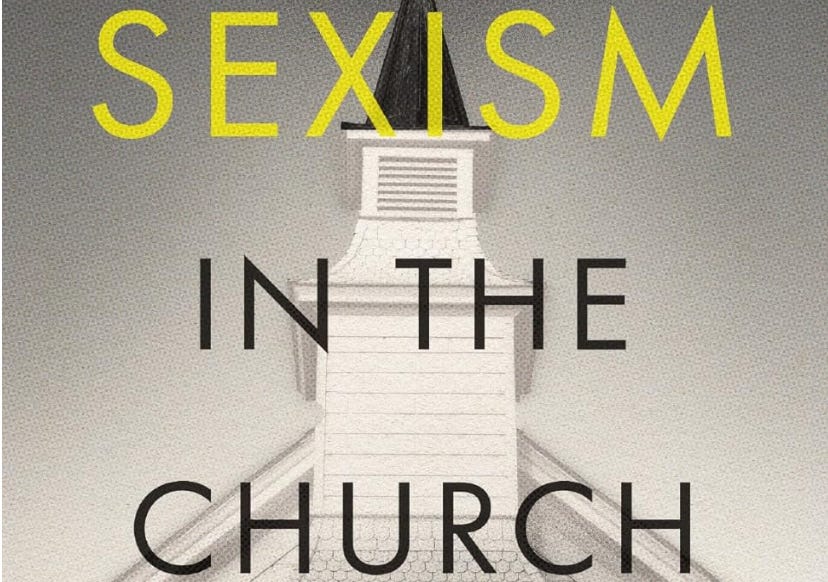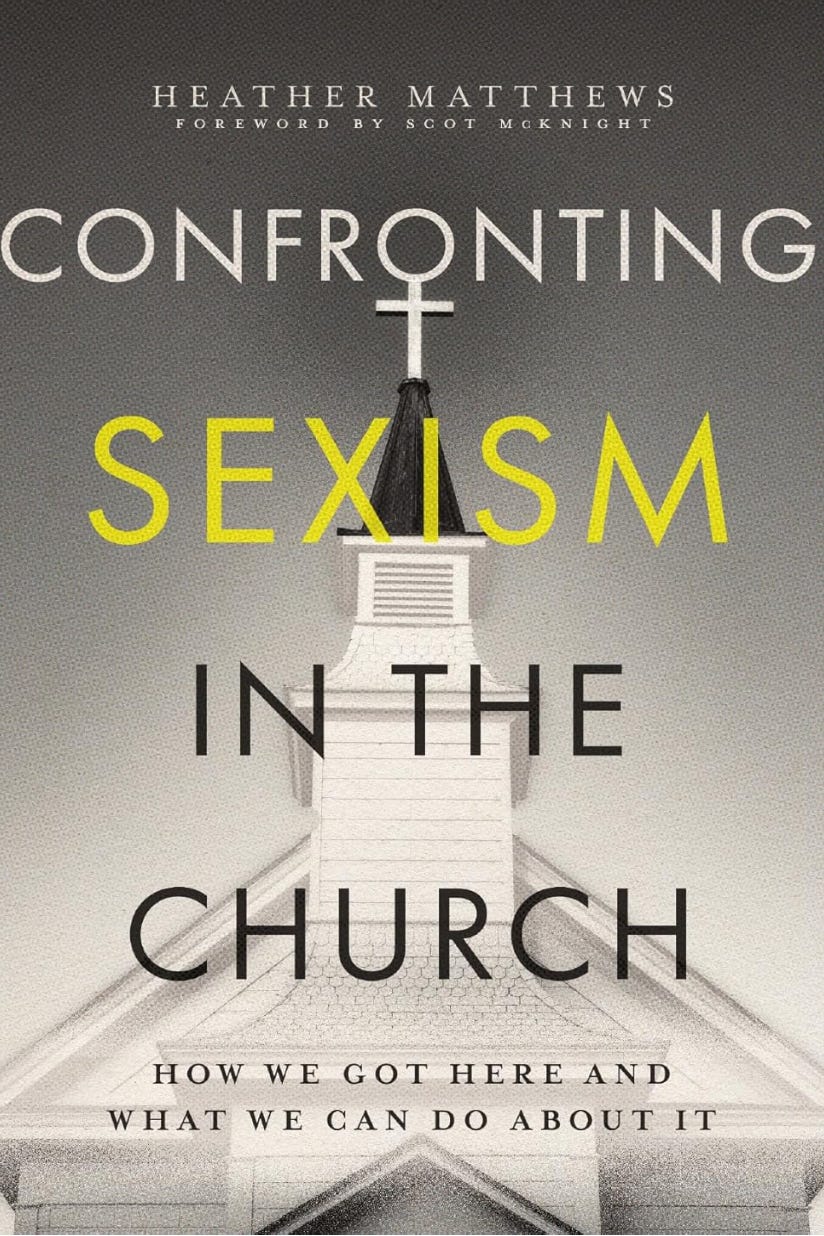This continues our series about Heather Matthews, Confronting Sexism in the Church
I grabbed the bag of steaming cinnamon-sugar churros and held out my hand for change. The street vendor dropped a few shiny coins into my palm. I happily ate my sugary snack and rolled those coins around between my fingers. This was my first trip to Mexico and as a teenager, my mind was full of wonder at the food, the people, even the money.
Those pesos found a home in an over-stuffed drawer when I returned home and eventually kept company with other miscellaneous international currency from my travels. Every so often I’d look through that stash of money and wonder what to do with it. It was real money, but no store in my town would let me purchase anything with it. It had monetary value, but it wasn’t what my local grocery store wanted.
Being a woman in evangelical spaces is a little like that. You might have valuable gifts, but many churches don’t want them. Or at best, they’ll let you buy some canned soup with your female money, but the steaks? Those are reserved for men.
In Heather Matthews’ book Confronting Sexism in the Church, Chapter 6 is titled The Price Women Pay. She delves into the lived experience of women, who want to contribute to the church, and yet find themselves discounted, sidelined, belittled, and devalued because their femaleness does not align with specific ideas about gender and spiritual gifting. In other words, their money isn’t wanted at this store. Go shop somewhere else. Or if you women are still desperate to participate in the church, you are more than welcome to contort your gifting into something different and spend it on a handful of pre-approved subservient, dream-inhibiting, calling-subverting, expertise-impeding, male-elevating roles. It will take all the money you’ve got; there will be nothing left at the end.
What a deal.
What has this looked like in my own life? It’s looked like being a model leader in the high school youth group, but never having it be called “leading.” Though I was an active participant in every youth activity offered, I was never asked if I’d considered ministry as a calling. Was never guided into mentor relationships to help me discern my future. Was never being asked to consider preaching at the annual youth service. My money was invisible.
As a young adult it’s meant I’ve seen the Spirit spontaneously move through my words and relationships and create an informal ministry where none previously existed. And instead of being approached and offered support on how to guide this gathering, church leadership saw it and handed it to a male pastor.
It’s meant that as an adult nearly every co-ed class or small group I’ve “facilitated” I’ve had to answer affirmatively that my husband would be physically present with me or that I would have a male authority overseeing me. It even means that I’ve participated in nationally franchised Bible studies, in women-only groups, and been informed I would only be considered for a leadership role if my husband granted permission.
The one position I was regularly offered, with no husband’s presence or male-oversight needed, was in church childcare. Repeatedly, this was suggested for me. Often, I took it. Educating children in the faith is no small task, and one I hope no church takes lightly, but with experience I recognize that it is not my unique gifting. I love kids, particularly my own, but I see how the Spirit moves around me and thanks to insightful friends and family, I see confirmation of my gifts in other areas.
Matthews’ points to studies showing that acceptance of traditionalist male and female gender responsibilities correlates with a woman’s inability to recognize “her own capacity for leadership, which makes it even less likely that a woman will pursue leadership in the church. When women’s unique strengths and passions are not identified and affirmed, women’s sense of identity and discernment of calling are greatly hindered.” (p.90) Women gifted in leading, teaching, preaching, pastoring, anything deemed remotely “masculine” by traditionalists, often find themselves serving outside of a congregational setting. When the church won’t take your money, you’ll find somewhere else to spend it.
Looking through the rearview mirror at my spiritual opportunities can often feel like a succession of brake lights. But thankfully there have been bright spots. Women pastors who showed me what it’s like to have a woman preach the word. Male pastors who offered mentoring & leadership opportunities. Local co-ed Bible studies where they affirmed my gifts. While the work to dismantle sexism in the church can feel like continual knocking on barred doors, the Spirit is generous and powerful, seeing women and cracking locks in unexpected ways. I’ll take that deal.






There’s nothing better than to be able to hear, at least a part of someone’s story, with an ear, a mind, a heart, a spirit, and a willingness toward empathic understanding. Thank you for this opportunity!
For several years, wife and I served as co-pastors of two small town churches, in the same small town.
Ministry flourished until the value of the women’s involvement in ministry at every level had a reality more vital than the “image” of leadership and vitality of the men. The men who considered themselves the true leaders of “their kingdoms” failed to understand what was truly happening, could only see their tiny kingdoms being threatened, and conflict became the “daily special.”
The importance of listening to, and learning another’s story, as Jesus taught, has proved to help live “The Life.”
Blessings to all, especially to women and all whose stories need to be heard!
Thank you so much for speaking out